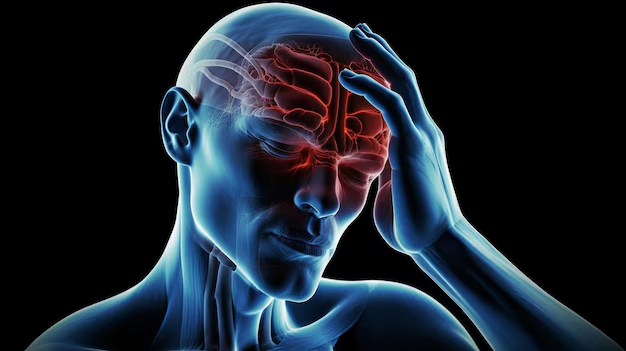- Home
- About Us
- Services
- Treatments
- Acid Reflux
- Allergic Rhinitis
- Alcoholic Fatty Liver
- Ankylosing Spondylitis
- Anxiety / Stress
- Arthritis
- Asthma
- Cervical Spondylitis
- Celiac Infection
- Colitis
- Constipation
- Dermatitis
- Detox Programme
- Diabetes (Madhumeha)
- Hair Fall
- Headache
- Hormonal Imbalance
- Hypertension
- Insomnia
- Irritable Bowel Syndrome
- Lungs Disease
- Migraine
- Neurological Disorder
- Non Alcoholic Fatty Liver
- Obesity Management
- Pain Management
- PCOD
- PCOS
- Sciatica Pain
- Sinusitis
- Skin Disorder
- Slip Disc
- Stress Management
- Thyroid
- Weight Management
- Techno-Ayurveda
- Media
- Blog
- Contact Us

Migraine
Understanding Migraine
A migraine is a type of headache that is often severe, recurrent, and can significantly disrupt daily life. Unlike typical tension headaches, migraines are usually accompanied by a range of symptoms, including nausea, vomiting, sensitivity to light and sound, and in some cases, visual disturbances (known as aura). Migraines can last anywhere from a few hours to several days and can be highly debilitating for those who suffer from them.
Symptoms of Migraine
1. Throbbing Headache
2. Sensitivity to Light
3. Sensitivity to Sound
4. Nausea
5. Vomiting
Common Causes of Migraine

Genetic Predisposition
Migraine can be triggered by genetic predisposition, where family history plays a significant role. Individuals with a close relative who suffers from migraines are more likely to develop the condition, as certain genes influence the brain's response to triggers.

Hormonal Fluctuations
Hormonal fluctuations, particularly in women, can trigger migraines. Changes during menstruation, pregnancy, and menopause, or the use of birth control pills, affect estrogen levels, which can influence the brain's pain pathways, increasing the likelihood of migraine attacks.

Environmental Triggers
Environmental triggers such as bright lights, loud noises, strong smells, air pollution, or extreme weather conditions can provoke migraines. These external factors can overstimulate the nervous system, leading to the onset of a migraine in susceptible individuals.

Dietary Influences
Certain foods and drinks, such as caffeine, alcohol, chocolate, aged cheeses, and processed meats, can trigger migraines. These dietary influences may release chemicals like tyramine or histamine, or cause dehydration, leading to headache onset in sensitive individuals.

Stress and Emotional Factors
Stress and emotional factors, such as anxiety, depression, or major life changes, can trigger migraines. Stress activates the body's nervous system, releasing chemicals that can lead to changes in blood flow and heightened sensitivity, provoking migraine attacks.
FAQs of Migraine
Migraines are believed to be caused by a combination of genetic and environmental factors. Triggers include stress, hormonal changes, certain foods, environmental factors like bright lights or strong smells, lack of sleep, and certain medications.
To prevent migraines, it is important to identify and avoid triggers, maintain a regular sleep schedule, manage stress through relaxation techniques, stay hydrated, and avoid dietary triggers like caffeine, alcohol, and certain processed foods.
Migraine treatments include over-the-counter pain relievers (e.g., ibuprofen, acetaminophen), prescription medications like triptans, anti-nausea medications, and preventive medications. Lifestyle changes such as stress management, proper sleep, and dietary adjustments can also help.
